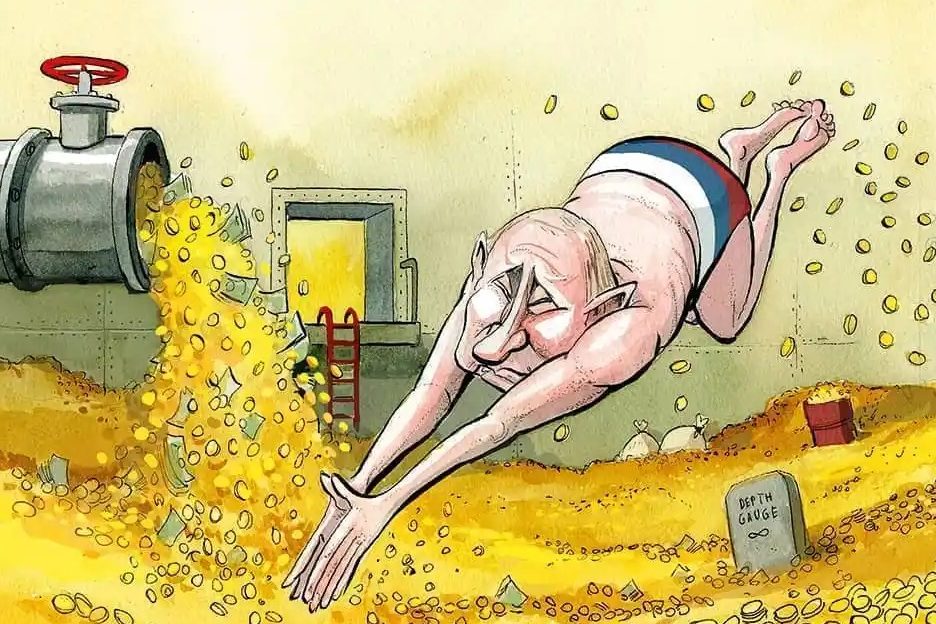The seizure of enemy treasure, formerly known as plunder and pillage, is an ancient tool of war. Though still practiced in the world’s nastiest conflict zones, it’s a tricky business within a rules-based international order. The G7’s agreement to lend $50 billion to Ukraine — using income from $300 billion of frozen Russian assets to cover interest and repayments on the loan — is a vivid case in point. And some would say, a lily-livered half-measure.
The key feature of the deal is that it does not actually claim ownership of Russian loot — which however ill-gotten is mostly held in EU banks in the form of western government bonds. It merely diverts interest payments due on the bonds from the issuing governments. But why not confiscate the capital itself, given that the Putin regime clearly has no respect for any order other than its own and has in recent times plundered the Russia-based investments of numerous foreign energy companies as well as the likes of Danone, the French dairy group, and Carlsberg, the Danish brewer?
According to the Kennan Institute, a US thinktank, “no western company’s property is safe from effective nationalization in Russia,” while the Washington Post argues for the “elegant justice” of transferring frozen Russian assets direct to Ukraine. In that mode, the US government has separately decided, under the Repo Act signed by President Biden in April, to “repurpose” the smaller holding of Russian capital, around $5 billion, that lurks in the US banking system.
So why such caution at the G7? Evidently because Christine Lagarde of the European Central Bank and her peers in Germany and elsewhere fear confiscation would provoke a flight of Chinese and other countries’ reserve holdings from western government bonds and currencies. But a $50 billion loan will fund the Ukrainian war effort for less than a year (in 2023 the military bill was $65 billion), while a Russian victory would have far worse consequences for the world than a burst of money market turmoil. On the other hand, what a difference $300 billion might make — and why, morally, should Putin be allowed to keep it? If realpolitik says an orderly plunder of Russian treasure might save Ukraine, then shouldn’t the rules change to allow it?
;768:[300×250,336×280,320×100];0:[300×250,320×100,320×50]”]This article was originally published in The Spectator’s UK magazine. Subscribe to the World edition here.


























Leave a Reply